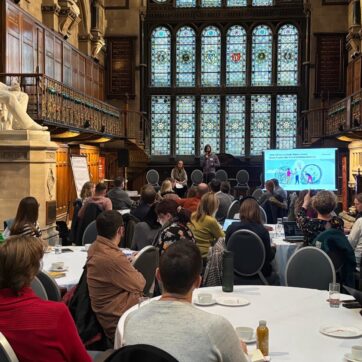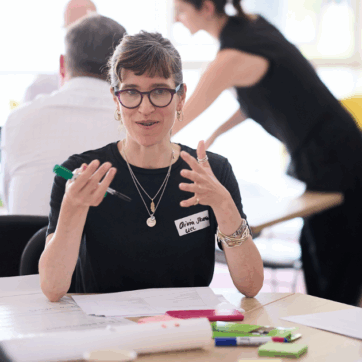UPEN’s online survey was promoted during late May and early June 2021. It was open to all academic and research staff working at UK universities, and to all PhD students studying at UK institutions.
Respondents were asked to comment on a number of potential barriers to parliamentary engagement, and on a range of possible measures which might incentivise more academics to engage with Westminster. Additional ideas and comments were also welcomed.
The survey attracted 790 respondents from many universities across the UK.
How much interest is there in engaging with Parliament?
Admittedly, this was a self-selecting sample, but the results really suggest that there’s a great deal of untapped ‘participatory potential’ among the academic research community in the UK.
The survey focused on one of the best opportunities which academics have to inform the UK Parliament’s work; the regular inquiries into a range of topics which select committees in both Houses of Parliament carry out.
No less than 91% of respondents said they would be interested in submitting written or oral evidence in response to a Westminster committee inquiry or call for evidence.
So what are the key barriers to engagement?
Despite this strong level of interest, one important barrier is a perceived lack of knowledge about how committees in Westminster actually work; more than half of the respondents (56%) said they were either ‘not very knowledgeable’ (47%) or ‘not at all knowledgeable’ (9%) about the work of committees in Parliament.
More than two-fifths (42%) of respondents saw their own lack of knowledge of committees as a significant barrier to their own future participation in committee inquiries.
One female post-doctoral respondent said: “I don’t know enough about it to know if I’m interested, seems quite intimidating.” A female professor stated: “I would really like to, but I would be very nervous because I don’t really know what they want.”
A further key barrier to participation was lack of time; a third (33%) of all respondents cited lack of time as a significant barrier to their participation.
A male professor at a university in the Yorkshire and Humber region commented: “The time and costs of travelling to London are increasingly unrealistic. My university has stopped all travel funds for staff.” Another male academic said: “Time is the really big deal. Workload is such that I barely have time to do the minimum requirements of my job, let alone extra stuff.”
What would encourage greater participation?
The potential measures which respondents identified most frequently as making their future participation more likely were “Workload recognition from my own university” and “Clear information about how the committee might use any submission I make” . Each of these options was chosen by 61% of respondents as providing a strong incentive to engage.
Individual support for committee inquiry oral witnesses and specialised training from parliamentary staff were also popular options, each selected by more than half the respondents as making their own engagement much more likely.
In addition, more than half of each of three different categories of respondent felt that the opportunity to give oral evidence remotely would provide a good inducement to engage. The groups in question were among those traditionally marginalised within academia: namely, women, respondents not identifying as ‘white, and disabled respondents.
A further issue, highlighted in many additional comments, was the fact that many respondents said or implied that they simply were not receiving information about parliamentary inquiries, either directly or through their institution. However, both UPEN and Parliament’s own Knowledge Exchange Unit (KEU) circulate details of parliamentary inquiries to many universities on a weekly basis; UPEN alone has 92 member institutions, most of which are universities. This information gap is an issue on which UPEN is keen to work with universities to address.
Next steps? UPEN is sharing the survey findings with senior figures in Parliament and with its own members. It is recommending the following measures:
UPEN should work with its member institutions to explore how universities can better support academic engagement with Parliament
UPEN should work collaboratively with Parliament’s committees and Knowledge Exchange Unit (KEU), and with universities to:
- help ensure that training on engaging with Parliament is easily accessible to all academics and researchers in higher education
- improve the visibility, within the academic research community, of Parliament’s committees and their individual inquiries
Parliament’s committees should:
- continue to allow committee inquiry witnesses to give oral evidence remotely to promote inclusivity and to help ensure a greater diversity of witnesses
- consider whether they can acknowledge contributions by academics and researchers beyond citations in final inquiry reports
Universities and research funders should explicitly incentivise and reward engagement with parliamentary committee inquiries
Finally, as the person who was privileged to lead on the design of the survey and on the analysis of the results, I’d just like to thank all those who took part in the survey, the members of the advisory group and Parliament’s KEU which assisted in this work, and both UPEN and my own institution, Queen’s University Belfast, for helping to make the survey happen.
It was really heartening to see so much enthusiasm for parliamentary engagement; let’s hope that at least some of the suggested measures are taken up, and that a larger and more diverse range of academic voices can be heard at Westminster in the near future.
Dr Liz Fawcett is Research Impact Officer (Arts, Humanities and Social Sciences) and the UPEN Representative at Queen’s University Belfast . She is also a former Lecturer in Media Studies, whose research interests include political communication and participation.


